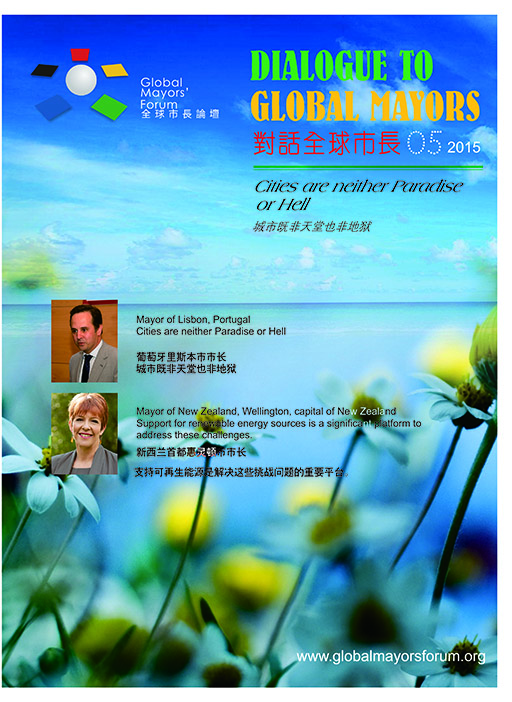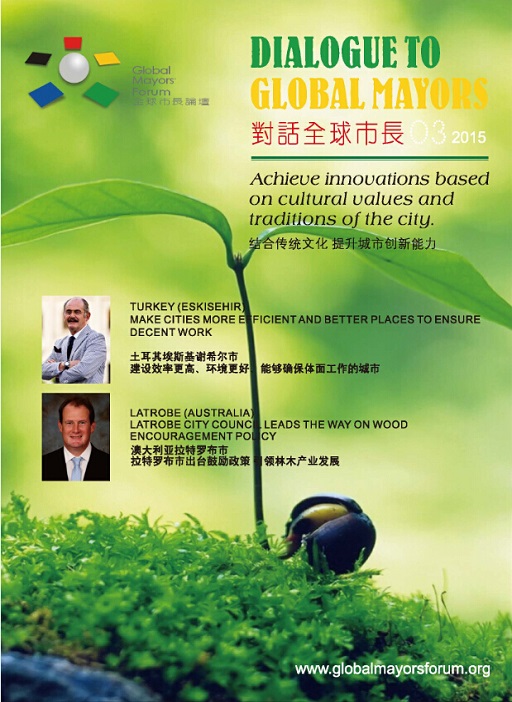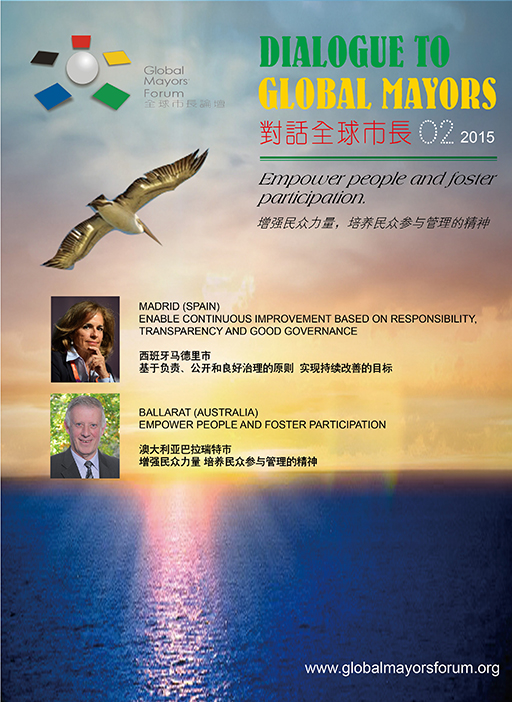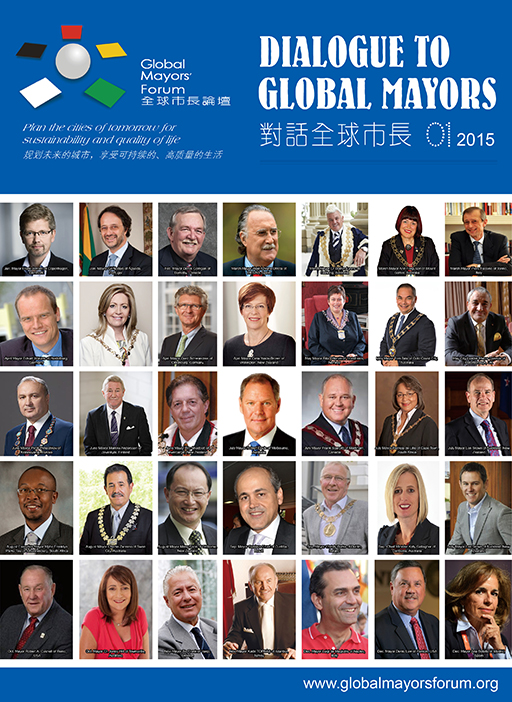2015
"Dialogue to Global Mayors" 2015 issue#05
“The Earth is not cold and hot unevenly”! This means that the air in Paris is no longer transparent, Beijing’s sky is no longer blue. With the development of global economy, the increasing emissions towards soil, water, especially emissions of harmful substances in the atmosphere, have destroyed the atmospheric environment and the ecosystem and it will eventually cause catastrophic climate changes. Corresponding to the water-pollution, solid pollution and e-waste management has increasingly become the priority of our lonely planet. Therefore, pollution control and human survival environment protection has become a global problem to be solved. In order to control the pollution, sources of the pollution must be identified. It normally comes from fossil energy and non-renewable mineral resources. People should focus on comprehensive development of solar energy, wind, ocean energy and biomass energy. Accelerating the development of global renewable energy would become an increasingly important, urgent, and viable options of global energy structure and adjustment strategy. Pollution control and renewable energy development is the fundamental in all human existence. We must focus on the energy of the city development planning, treatment of city waste, the treatment systems of urban water supply and sewage and experience in developing clean energy.
"Dialogue to Global Mayors" 2015 issue#04
Welcoming this beautiful May makes me think of a line from Spring Travels, a poem by Wang Ya of the Tang Dynasty: “Apricot trees and riverside, the newly opened night wind”. Driving by the Miju River or walking with our friends along Cihu Lake, we can see that spring is adorning the Erhu Lake like poetry and painting. We feel the vitality of the harmony between humans and nature from each city. This is helping us focus on how to build a more inclusive city, building a home which that is pro-poor, inclusive, equitable, and rejects gender, race or other kinds of discrimination. Socially equitable development is one of the three pillars of sustainability, and is vital to creating a shared, sustainable urban future. The challenges posed by the pace and scale of contemporary urbanization require us to invest in infrastructure, development, and political processes that promote inclusivity, and a pro-poor, gender, and youth sensitive agenda.
"Dialogue to Global Mayors" 2015 issue#03
In March, the winter season has already gone and dead leaves fall away as new buds show a flourishing lease on life and renewed vigor. In China, the old saying goes: A Year’s Plan Starts from the Spring Season. So it seems like it is a perfectly natural phenomenon to discuss the theme of urban traditions and innovations in the first of the four seasons, in the same way that a new form of life develops by taking nourishment from old things. Urban innovations include technological advances and other improvements in economic systems, public governance, urban design or cultural identity in the context of sustainability. Changing and re-building the variety of culturally significant traditions creates more economic opportunities, makes cities even more productive, infuses rich cultural and spiritual values with fresh and creative new formats, and accordingly upgrades urban competitive power. That is the topic of this issue of DIALOGUE TO GLOBAL MAYORS: achieve innovations based on the cultural values and traditions of the city.
"Dialogue to Global Mayors" 2015 issue#02
With the coming of February, the northern hemisphere enters spring. It is the time for us to welcome the most important holiday season in China- the Spring Festival. Every nation on earth has such a significant day for their-own festival, people relax, stay at home with their families and join in festival activities with happiness. Thanks to public support and engagement, a variety of culturally significant traditions have been kept alive to the present day. In the same way, the journey towards sustainability and environmental awareness is inseparable from public participation and requires broad based support. That is the topic of this issue of Dialogue to Global Mayors, the seventh Melbourne Principle -- empower people and foster participation. Overcoming urban challenges does not only require new public policies, but the engagement of all city residents since they are the ones experiencing these problems every day and have ideas about how to address them. All citizens are a part of the city. The actions of individuals contribute to improve our cities and change our urban future.
"Dialogue to Global Mayors" 2015 issue#01
2015 is just one-year time left before the Third United Nations Conference on Housing and Sustainable Urban Development (Habitat III), to be hold in 2016. As a member of the WUC Steering Committee, GMF would strive to join in the effort to support Habitat III, revisiting today’s global crisis and seeking for the best solutions to a sustainable urban future. From 2015, the magazine will focus on the topics raised by Habitat III, as our January issue features ‘urban planning for sustainable and high-quality life’. We anticipate that in the year of 2015 there will be more urban policy-makers, stakeholders and experts joining us to contribute more excellent articles for DIALOGUE TO GLOBAL MAYORS. Readers who care about urban development are also welcome to contribute articles to the OPEN DIALOGUE, to create a blueprint for cities of tomorrow.
Copyright © 2005-2021 IMCC. All Rights Reserved.粤ICP备15048427号 ruizim.net






